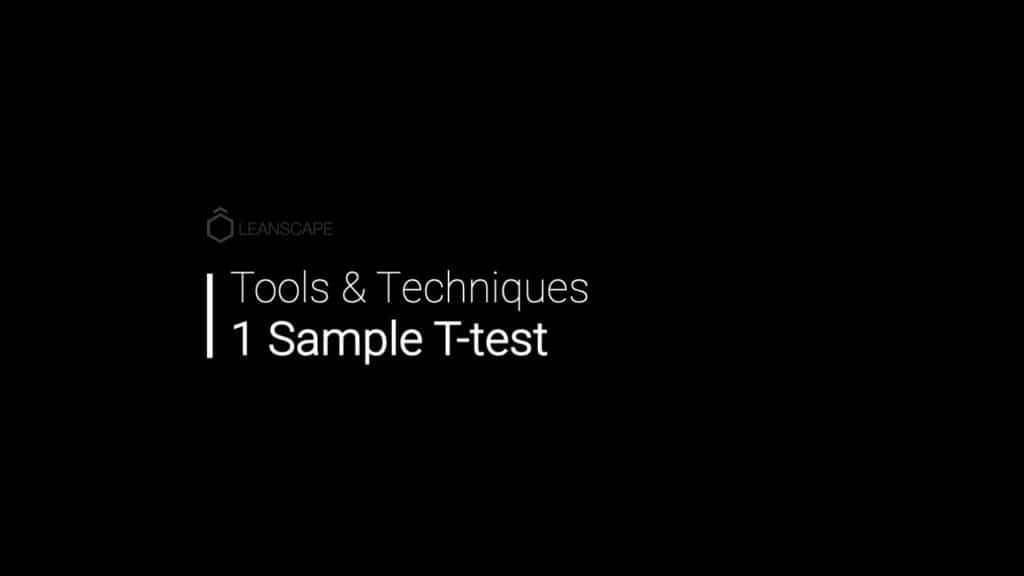The 1 sample t-test is a statistical procedure used to determine whether a sample of data differs significantly from a population or hypothesized mean. The t-test also produces a measure of effect size, which can be used to help interpret the results. This test is sometimes referred to as a Student’s t-test or simply as a t-test. In this blog post, we will discuss the 1 sample t-test, how it works, and when you should use it.
How the 1 Sample T-Test Works
The 1 sample t-test compares a sample mean to a population or hypothesized mean. It does this by calculating the difference between the two means and dividing it by the standard error of the difference. The resulting statistic is then compared to a critical value from the t-distribution. The t-distribution is a probability distribution of continuous random variables that take on values between -1 and +1. At large sample sizes, the t-distribution approaches the normal (or bell curve) distribution.
The null hypothesis for the 1 sample t-test is that there is no difference between the sample mean and population or hypothesized mean. The alternative hypothesis is that there is a difference between these two means. If the calculated t statistic falls outside of the critical value, then you can reject the null hypothesis in favour of the alternative hypothesis.
When Should You Use The 1 Sample T-Test?
The 1 sample t-test can be used in several different situations. One common scenario is when you have conducted a survey and want to know whether the results are statistically significant. For example, let’s say you administer a survey about customer satisfaction to 100 customers and obtain a mean score of 4 out of 5. Is this score statistically different from the population mean? To find out, you would calculate a 1 sample t-test.
Another common scenario is when you want to know whether your data differ significantly from some predetermined value. For example, let’s say you are testing products for quality control purposes and want to know whether they differ significantly from the industry standard. To find out, you could conduct a 1 sample t-test comparing your data to the industry standard.
Conclusion:
In conclusion, the 1 sample t-test is a statistical procedure used to determine whether a sample differs significantly from a population or hypothesized mean. It can be used when you want to know whether your data differ significantly from some predetermined value, such as an industry standard. Thanks for reading!
With our Green Belt Course, we cover the 1 Sample T-test as part of the Measure phase and within our Introduction to Statistics. If you want to know more, visit our Lean Six Sigma Green Belt Course.




